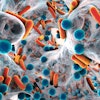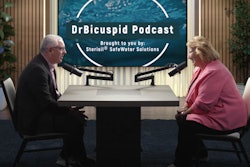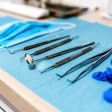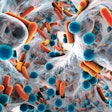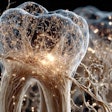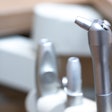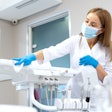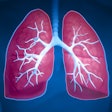
Comprehensive dental care protocols paired with ongoing research and technological advancements may help astronauts maintain their oral health during extended missions, according to a review article that was recently published in Cureus.
These efforts may not only protect astronauts but drive innovations in dental science that offer benefits that extend to dental care on Earth, the authors wrote.
"By understanding and addressing the unique conditions of space, humanity can continue to explore the cosmos while ensuring the well-being of those who venture beyond our planet," wrote the authors, led by Jumana Hasin Abdul Samathu of the SRM Kattankulathur Dental College in India (Cureus, August 10, 2024, Vol. 16:8, e66591).
Space exploration poses unique health challenges, especially to one's oral health, because of the extreme conditions beyond Earth's atmosphere. Microgravity significantly alters bodily functions, affecting fluid distribution, the musculoskeletal structure, and immune responses, all of which contribute to dental health, the authors wrote.
Common terrestrial dental problems, such as caries and periodontitis, become more complex in space, as evidenced by previous space missions. The altered microbial environment and reduced salivary flow in microgravity increase the risk of dental issues, such as dry mouth and sialolithiasis, they continued.
Further, microgravity leads to increased virulence and antibiotic resistance, raising concerns about severe oral health problems, including periodontitis and potentially cancerous lesions. Microgravity not only alters the composition of oral bacteria, but it also reduces oral immunity, increasing an astronaut's risk of developing an infection. These challenges underscore the need for advanced dental care protocols tailored to space conditions, the authors stated.
Dental restorations also experience changes with the changes in gravity and temperature. Microgravity impacts dental restorations, such as crowns and fillings, by affecting their retention and durability due to pressure fluctuations. Research suggests that resin cement performs better than traditional materials like zinc phosphate or glass ionomer cement under space conditions, they wrote.
"This commitment to health and innovation is essential for the success of future space missions and the advancement of dental science," the authors concluded.



